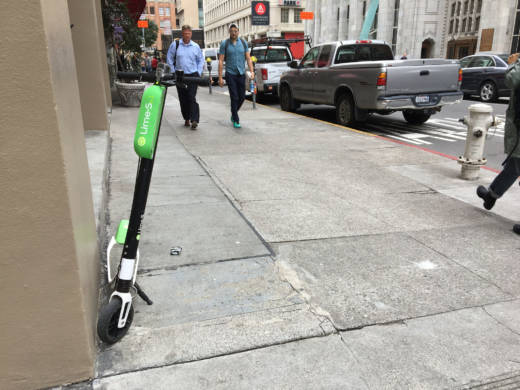Three companies -- Bird, LimeBike and Spin -- distributed scooters on the city's streets in March just after the Board of Supervisors began discussing steps to regulate the machines.
Amid the ensuing public uproar, many complaints focused on the tendency of some riders to dump their scooters just anywhere instead of parking them out of the way of pedestrians.
The Board of Supes subsequently passed an ordinance making it illegal for the scooter firms to operate without a permit. Thus the creation of the SFMTA's permit process.
The agency plans to grant permits to as many as five companies to operate a total of 1,250 scooters citywide in the initial phase of its 12-month pilot project. The agency could allow the number of scooters to double after the first six months of the pilot, which is designed to allow the city to gather data on the vehicles' use and test the companies' ability to develop parking solutions.
A staff memo prepared for Tuesday's SFMTA board meeting said the higher parking penalties are designed to ensure the scooter firms comply with city regulations.
"Meaningful enforcement is an important part of an effective permit program," the memo says. "And the ability to impose increased penalties for repeated violations will improve SFMTA’s ability to ensure compliance" with permit rules.
Ed Reiskin, the city's director of transportation, told board members Tuesday that higher fines arose from comments the SFMTA heard while developing the pilot project "that the fees that were originally proposed were too low and might be seen as a cost of doing business for a scofflaw company."
A total of 12 companies filed permit applications by the June 7 deadline -- including firms like Uber and Lyft that have not previously operated scooter programs.
Among the three companies that launched in the city in March, Bird was most aggressive in deploying its vehicles and has criticized the city's cap on the number of scooters to be deployed during the pilot project.
The Southern California-based firm was operating more than 2,000 scooters in San Francisco by late May and has argued that the city should adopt what it calls a "dynamic cap" -- essentially allowing each firm to decide how many machines to place on the streets based on demand.
